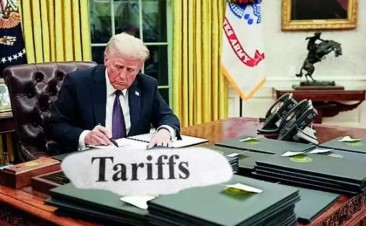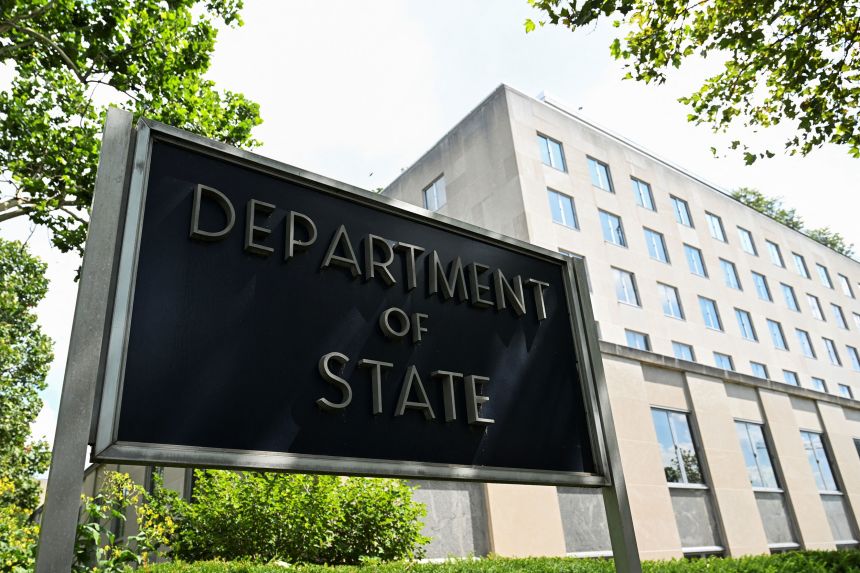
Trump Claims $2 Billion Daily Tariff Revenue as Global Markets Show Strain
- World News
- April 8, 2025
- No Comment
Trump Claims $2 Billion Daily Tariff Revenue as Global Markets Show Strain
U.S. President Donald Trump has once again defended his aggressive tariff policy, asserting that the United States is now earning over $2 billion per day through customs duties imposed on foreign imports. His remarks come amid rising tensions in the global trade landscape and continued volatility in financial markets.
Speaking during an executive order signing ceremony in Washington, Trump emphasized the effectiveness of his trade strategy. He noted that multiple countries are now actively seeking negotiations with the United States to avoid further economic penalties.
“We’re bringing in billions every single day,” Trump stated. “Nations like Japan and South Korea are sending top-level teams to strike better deals. America’s economic strength is back.”
Markets React with Unease
Despite earlier optimism, U.S. stock indexes closed in negative territory as investor concerns grew over prolonged trade disruptions. The S&P 500 ended the day down 1.6%, erasing early gains. The Dow Jones Industrial Average dropped 0.84%, while the Nasdaq Composite fell by 2.1%.
Market analysts point to uncertainty around ongoing tariff escalations, as businesses brace for higher import costs and shifting supply chains.
Trade Pressure Mounts Globally
Trump’s tariff measures—implemented broadly against major trading partners including China, the European Union, and India—have led to increased calls for dialogue. Officials from Japan and South Korea are reportedly en route to Washington to explore trade solutions and avoid additional levies.
“We’re not backing down,” Trump said. “All country will access to the U.S. market. But we’ll only welcome fair and balanced trade.”
Economists Warn of Repercussions
While the former president hails the tariff income as a fiscal success, economists caution that the broader economic consequences could be damaging. Higher consumer prices, strained diplomatic ties, and potential retaliatory measures remain pressing concerns.
Some business leaders and financial experts argue that sustained tariffs could hurt American competitiveness in the global market.







